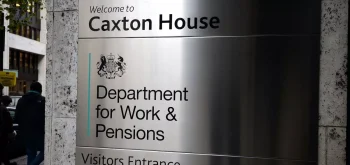Thousands of households forced to move on to universal credit (UC) after their existing benefits were wrongly stopped will be able to have their previous benefits reinstated or else receive top-ups, following a ruling by the Court of Appeal.
A single mother and her disabled daughter and a woman with mobility difficulties who lives alone won their test case on Monday. The legal action was brought by Child Poverty Action Group to challenge the lack of protection for claimants who are financially worse off on universal credit because of an incorrect decision by the Department of Work and Pensions (DWP). The two households were £!40 and £180 a month worse off respectively on the new benefit but were unable to return to their original position because of what CPAG called ‘the so-called ‘lobster pot principle – once on universal credit there’s no way back’.
The group explains that, unlike those who will in future be transferred to UC from their existing benefits as part of a mass, managed-migration process, they were not entitled to have their payments topped up to the level of their original benefits. ‘Other than the DWP error ending their previous benefits, neither household had any change in circumstances which would have obliged them to claim UC,’ CPAG said.
The court ruled there was no justification for treating the two households differently from other claimants who remain on ‘legacy’ benefits and who will in the future move to the new benefit through managed migration.
Lord Justice Singh ruled that unfairly discriminated against the two claimants and was in breach of the European Convention on Human Rights. ‘Although it is true that the appellants were not compelled by law to apply for UC, as a matter of practical reality they had no choice but to apply for UC,’ he continued. ‘It is important that the legislation in this country governing social security should be interpreted in a way which conforms to practical reality, given the potential impact on some of the poorest people in society.’
In March last year, the High Court had rejected their claim and found that it was enough that the secretary of state had considered whether it was justifiable to treat the two households differently to claimants remaining on legacy benefits and claimants who in future will be migrated to UC with transitional protection. The Appeal judges have overturned that decision.
Child Poverty Action Group’s solicitor Carla Clarke said that the ruling had corrected ‘a glaring injustice’. ‘The court was clear that the way in which UC is implemented must comply with human rights. Claimants pushed onto UC when the DWP wrongly stops their old benefits should not have to tolerate an income drop that causes them real hardship simply because the DWP considers it is too costly or too complex to rectify its own mistake. Not least among those who will benefit from the judgment are children and adults who otherwise stood to lose out on crucial help with the extra costs of disability. The Secretary of State must act swiftly to implement the judgment so that any claimant who claims UC following an incorrect decision to end their previous benefits is protected against financial losses.’
In a separate case brought by CPAG heard in the High Court this week, a single mother on universal credit is challenging the DWP’s approach to earnings in UC because it left her benefit-capped – and up to £5,000 worse off per year – purely because her employer paid her four-weekly rather than monthly.
More information on that case – Pantellerisco and others v SSWP CO/3572/2019 – here; and you can read the Court of Appeal here.






